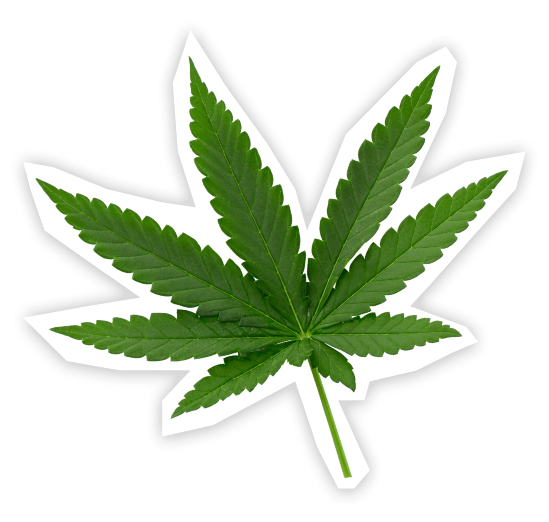Cannabis
Other names:
Cannabis can also be called weed, grass, marijuana, zoot, spliff, pot, hash, THC and there are lots more street names too!

Cannabis is the most widely used illegal drug in the UK. It contains a number of different chemical compounds (cannabinoids) – tetrahydrocannabinol (THC) and cannabidiol (CBD) are the most widely known. The effect of the drug will vary depending on the levels of these chemicals. “Skunk” tends to refer to a much stronger strain of cannabis which contains high levels of THC.
Clip from our New Cannabis Film.
Visit our professionals page for further details about our teaching resources.
Effects
The desired effects of cannabis use include relaxation, euphoria, altered consciousness/distorted perceptions of time and space and increased awareness of sensation. Some people have found that cannabis can help reduce feelings of pain and/or nausea, which has led to its use as a medical treatment in some countries. Unwanted effects include memory impairment, dry mouth, impaired motor skills, increased appetite, reddening of the eyes, anxiety/panic, paranoia, poor concentration, and loss of motivation.
Appearance
Cannabis is a plant-based material which is most commonly sold as a mixture of dried flowers and/or leaves, or small blocks of dried and pressed resin of the cannabis plant. It can also be found as an oil, though this is less common in the UK.
How it's taken
Cannabis tends to be smoked, most commonly mixed with tobacco in a hand-rolled cigarette (“spliff”). It can also be smoked in a pipe. Pipes containing water are often referred to as “bongs”, and they tend to intensify the effects of cannabis. Cannabis can be mixed with food/drinks – for example, cakes, brownies, or tea. In recent years, “vaping” has increased in popularity and some cannabis users have learned to prepare it to be used in an e-cigarette.
Risks
• Cannabis use can affect your concentration and motivation. This can have a negative impact on your performance at school/college or work.
• The effects of cannabis can vary a lot depending on what strain you are using. Using bongs, pipes or edibles can also increase the effects felt. If using tobacco with cannabis also see the nicotine page.
• In some instances, cannabis can affect your state of mind and cause you to feel anxiety, paranoia and possibly experience psychosis (seeing or hearing things that aren’t there or believing things that aren’t true). This is normally only whilst under the influence of cannabis and will abate once the effects wear off.
• Some studies have shown a link between regular use of cannabis and serious mental health conditions, including schizophrenia. It is not clear whether cannabis causes these or whether people with underlying mental health conditions are more likely to use cannabis.
• Smoking cannabis is associated with the same risks as smoking tobacco, ranging from sore throats and coughs to lung cancer and emphysema.
• It can cause increased heart rate and blood pressure.
• Cannabis impairs reaction times and co-ordination. This is particularly noticeable when it is used with alcohol.
Keeping Safe
• If you choose to use cannabis, then do so in a safe environment and in the company of people you trust.
• The effects of cannabis can vary a lot depending on what strain you are using. Take a small amount first to test effects and strength, start low and go slow.
• If you choose to eat or drink something containing cannabis, wait before taking more. It can take up to 90 minutes to properly feel the effects, so by not waiting, you could end up taking a lot more than you intended and feel unwell.
• It is safer to avoid mixing cannabis with alcohol as this can increase the effects of both substances.
• It is illegal and very unsafe to drive if you are under the influence of cannabis. It can slow your reaction times and greatly increase the risk of an accident. Whether under the influence or not, if stopped by the police and drug-tested, any cannabis discovered in your system whilst driving could lead to you losing your licence.
• Try to avoid using cannabis every day, and aim to have at least a few drug-free days each week. Although cannabis may not be as physically addictive as other drugs, it is easy to build up a psychological dependence and regular users can notice withdrawal effects (e.g. insomnia and agitation) when they try to stop using.
• If you are unable to control your cannabis use or you are finding it difficult to reduce it may be a sign that you could do with some additional support..
